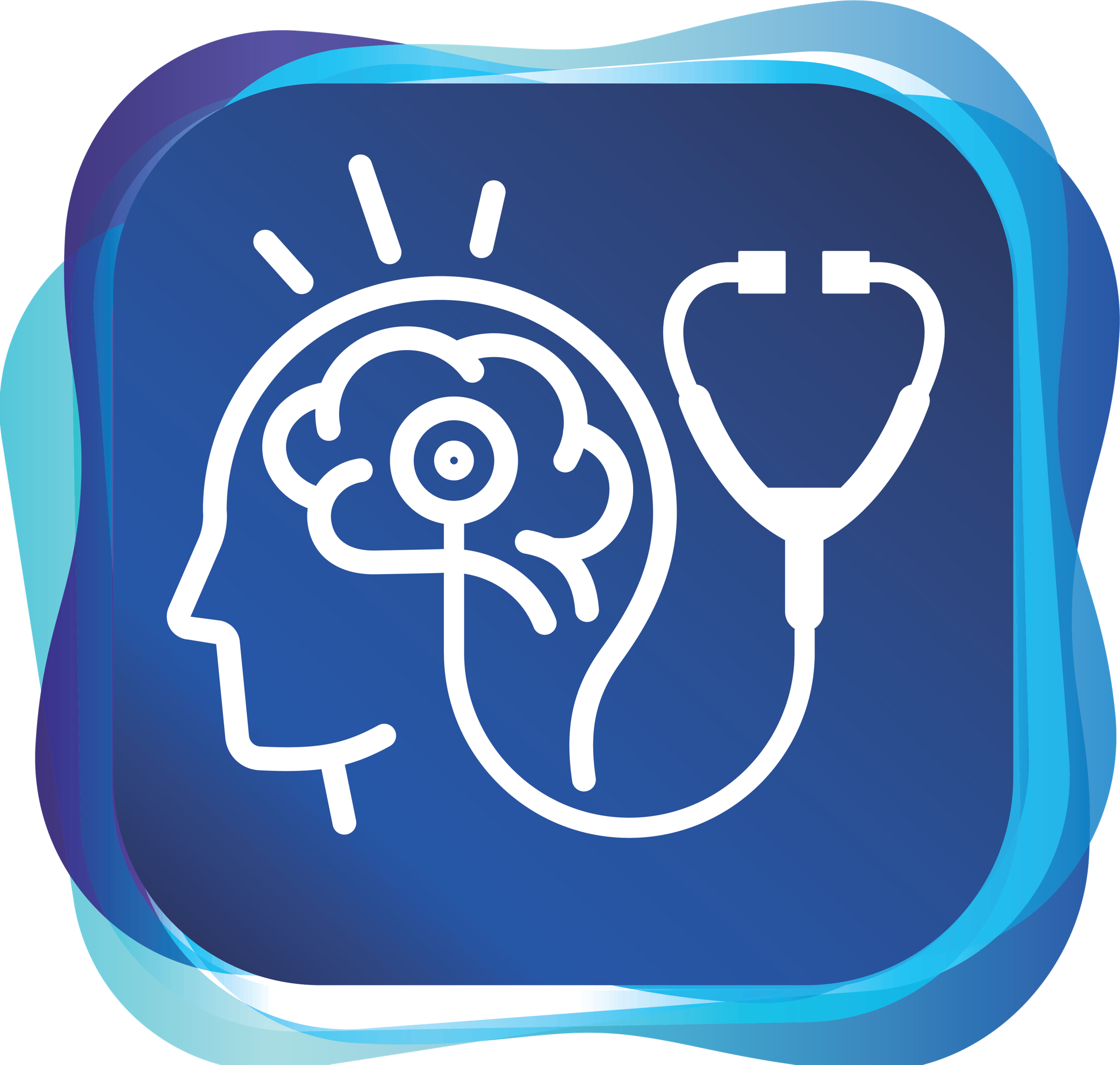 |
CCST9090 Scientific and Technological LiteracyMindscapes: Psychiatry and Mental Health Across Creative and Scientific FrontiersThis course is under the thematic cluster(s) of:
|
CCHU9022 Journey into Madness: Conceptions of Mental Health and Mental Illness
Course Description
This interdisciplinary course provides a comprehensive understanding of the multifaceted representation of psychiatry and mental health in literature, film, television, and scientific research. It aims to bridge the gap between creative expression and scientific knowledge in the field of mental health, fostering a nuanced appreciation of the subject matter.
Students will explore historical and contemporary portrayals of mental health issues in various forms of media and literature. By examining seminal works, films and television shows, they will gain insight into how these creative expressions have shaped and mirrored societal perceptions of mental health. Students will also learn the neuroscience and the scientific bases of mental disorders, staying abreast with recent breakthroughs in research and therapies. This course will cultivate students’ critical thinking within the arena of mental health discussions.
A module on AI Applications in Mental Health is included, which explores how AI can assist in diagnosis, treatment, and monitoring of mental health conditions, as well as the potential limitations and associated ethical issues.
The course employs diverse teaching methods, including lectures, multimedia presentations, guest speaker sessions, media screening and interactive discussions, fostering a dynamic learning environment. This course is ideal for students across various disciplines, including literature, film, television, and science, as well as those seeking a deeper understanding of mental health from a multidimensional perspective.

Course Learning Outcomes
On completing the course, students will be able to:
- Articulate a comprehensive understanding of the historical and contemporary perspectives on mental health as portrayed in literature, film, and media.
- Critically analyze scientific principles and advancements in psychiatric research and treatment, and their implications for mental health care.
- Evaluate the role of artificial intelligence (AI) in the diagnosis, treatment, and monitoring of mental health conditions, including its potential benefits and limitations as well as associated ethical issues to societies and cultures.
- Build up competencies in communication skills, including oral, written, visual and digital literacies.
- Collaborate effectively in discussions and projects that explore the intersection of creative expression and scientific knowledge in mental health.
Offer Semester and Day of Teaching
Second semester (Wed)
Study Load
| Activities | Number of hours |
| Lectures | 24 |
| Tutorials | 10 |
| Media screening | 6 |
| Reading / Self-study | 36 |
| Assessment: Essay / Report writing | 8 |
| Assessment: Group project and presentation | 40 |
| Assessment: In-class quizzes | 2 |
| Total: | 126 |
Assessment: 100% coursework
| Assessment Tasks | Weighting |
| Tutorial participation | 30 |
| In-class quizzes | 30 |
| Reflective writing | 10 |
| Group project and presentation | 30 |
Required Reading
Articles:
- Blumer, D. (2002). The Illness of Vincent van Gogh. The American Journal of Psychiatry, 159(4), 519-526. https://doi.org/10.1176/appi.ajp.159.4.519
- Dow, J. (2011). Book Review: “Mindreadings: literature and psychiatry”. International Journal of Culture and Mental Health, 4(2), 152. Taylor & Francis Group. From https://doi.org/10.1080/17542860903208847
- Graham, S., Depp, C., Lee, E. E., Nebeker, C., Tu, X., Kim, H. C., & Jeste, D. V. (2019). Artificial intelligence for mental health and mental illnesses: an overview. Current Psychiatry Reports, 21, 1-18.
- Lin, S. T., Yang, P., Lai, C. Y., Su, Y. Y., Yeh, Y. C., Huang, M. F., & Chen, C. C. (2011). Mental health implications of music: Insight from neuroscientific and clinical studies. Harvard review of psychiatry, 19(1), 34-46.
- Riles, J. M. (2020). The social effect of exposure to mental illness media portrayals: Influencing interpersonal interaction intentions. Psychology of Popular Media, 9(2), 145.
Books:
- Chekhov, A. P., Hingley, R., & Chekhov, A. P. (2008). Ward number six and other stories. Oxford University Press. [Chap. “Ward Number Six”]
- Jamison, K. R. (1995). An unquiet mind (1st ed.). A.A. Knopf.
- Oyebode, F. (2009). Mindreadings: Literature and Psychiatry. RCPsych Publications. [Chap. 3 “Autobiographical narrative and psychiatry”; Chap. 6 “Letters and psychiatry: the case of Franz Kafka”; Chap. “Dementia and literature”]
- Shorter, E. (1997). A history of psychiatry: from the era of the asylum to the age of Prozac. John Wiley & Sons. [Chap. 1 “The Birth of Psychiatry”; Chap. 2 “The Asylum Era”; Chap. 5 “The Psychoanalytic Hiatus”; Chap 6 “Alternatives” (selected subsections: “Shock and Coma” & “Electroshock”); Chap. 7 “The Second Biological Psychiatry”; Chap. 8 “From Freud to Prozac”]
- Stuart, H., & Sartorius, N. (2022). Paradigms lost, paradigms found: lessons learned in the fight against the stigma of mental illness. Oxford University Press. 10. [Chap. 1 “Mental Illness-Related Stigma”; Chap. 2 “Cultures Count: They Stigmatize and Destigmatize Mental Illnesses”; Chap. 3 “Paradigms Found in Fighting Stigma”; Chap. 8 “Educational Systems”; Chap. 10 “Using Technology to Fight Stigma”]
- Xun, L. (2021). A madman’s diary. Findaway World.
Media:
- Hitchcock, A. (Director). (1960). Psycho. MCA Universal Home Video.
- Howard, R. (Director). (2001). A Beautiful Mind. Universal Pictures; DreamWorks Pictures; Imagine Entertainment. 13. Park, S. (Director). (2020). It’s Okay to Not Be Okay. Studio Dragon; Gold Medalist; tvN; Netflix.
Course Co-ordinator and Teacher(s)
| Course Co-ordinator | Contact |
| Professor S.S.Y Lui Department of Psychiatry, LKS Faculty of Medicine |
Tel: 2255 4486 Email: lsy570@hku.hk |
| Teacher(s) | Contact |
| Professor S.S.Y Lui Department of Psychiatry, LKS Faculty of Medicine |
Tel: 2255 4486 Email: lsy570@hku.hk |
| Professor W.C. Chang Department of Psychiatry, LKS Faculty of Medicine |
Tel: 2255 4304 Email: changwc@hku.hk |
| Miss N.K.M. Lau Department of Psychiatry, LKS Faculty of Medicine |
Tel: 2831 5429 Email: niclkm@hku.hk |

